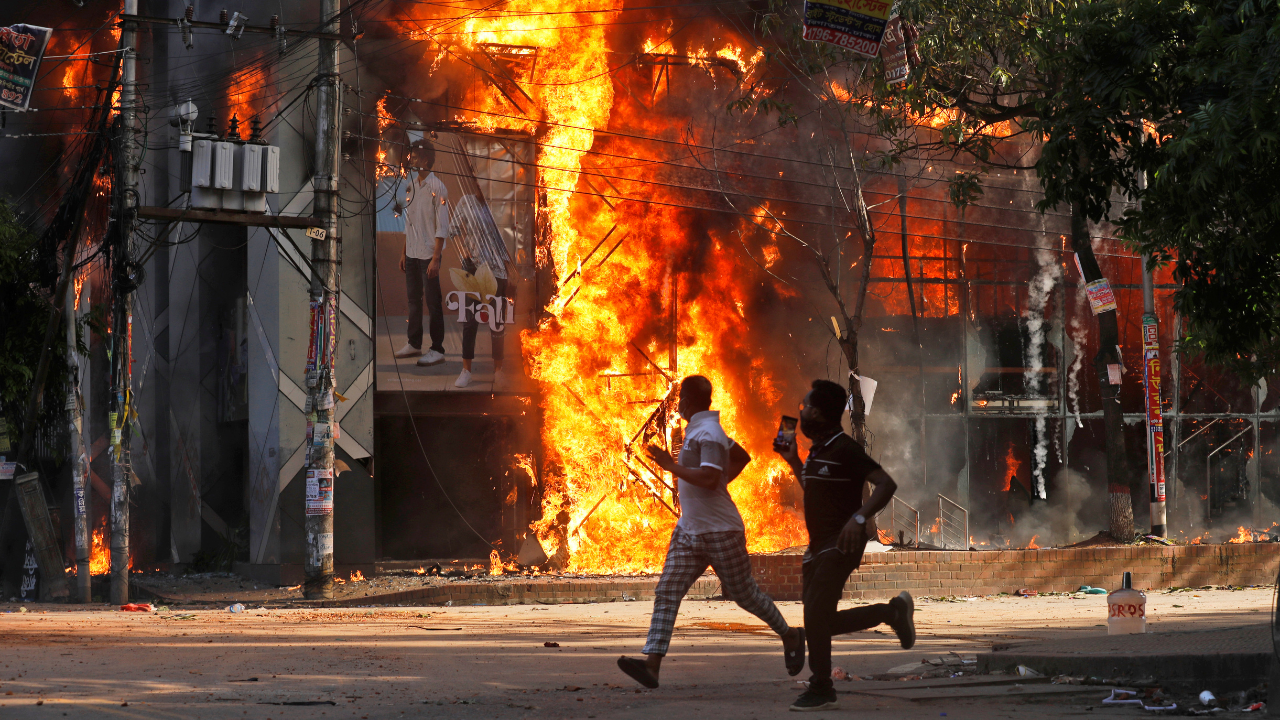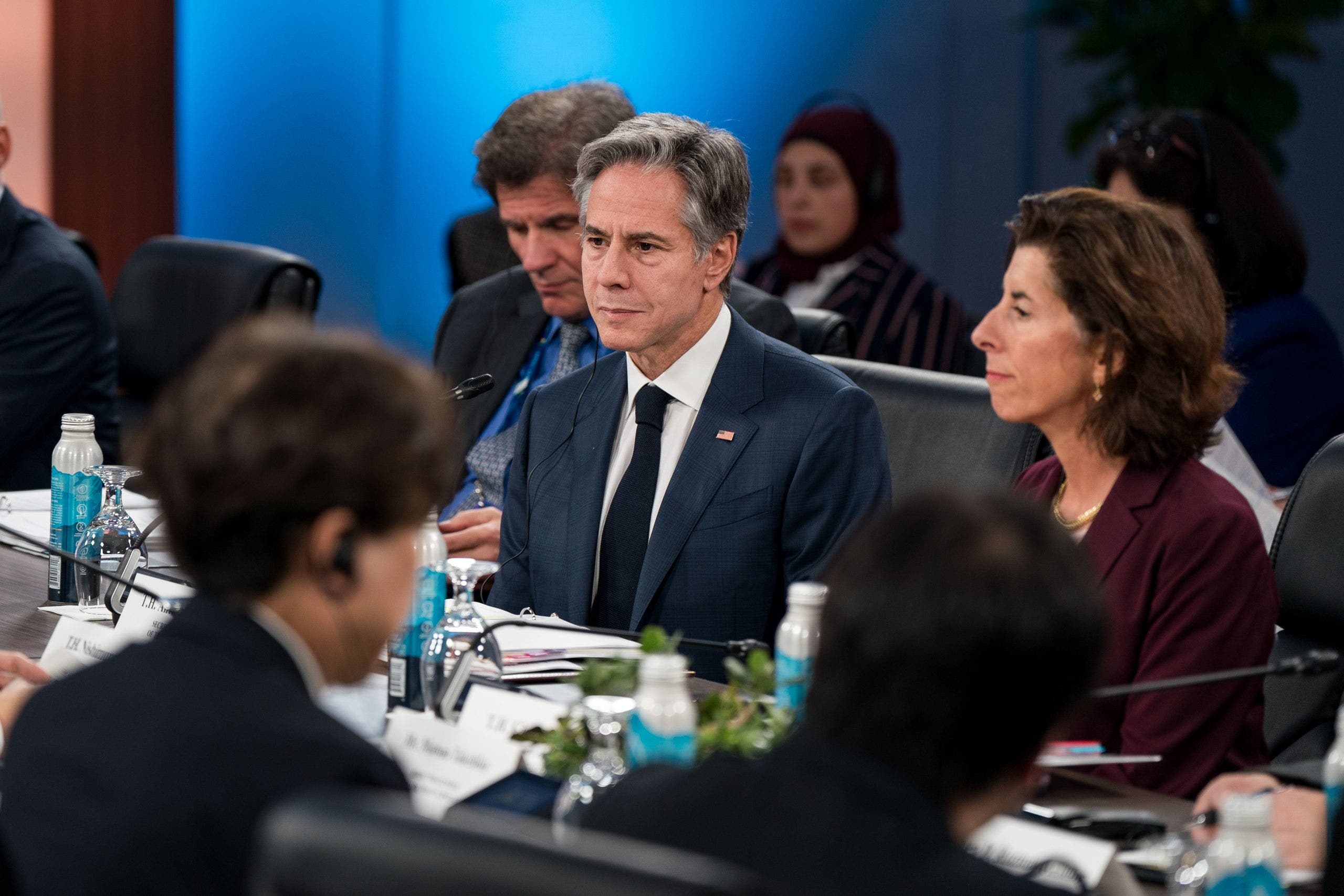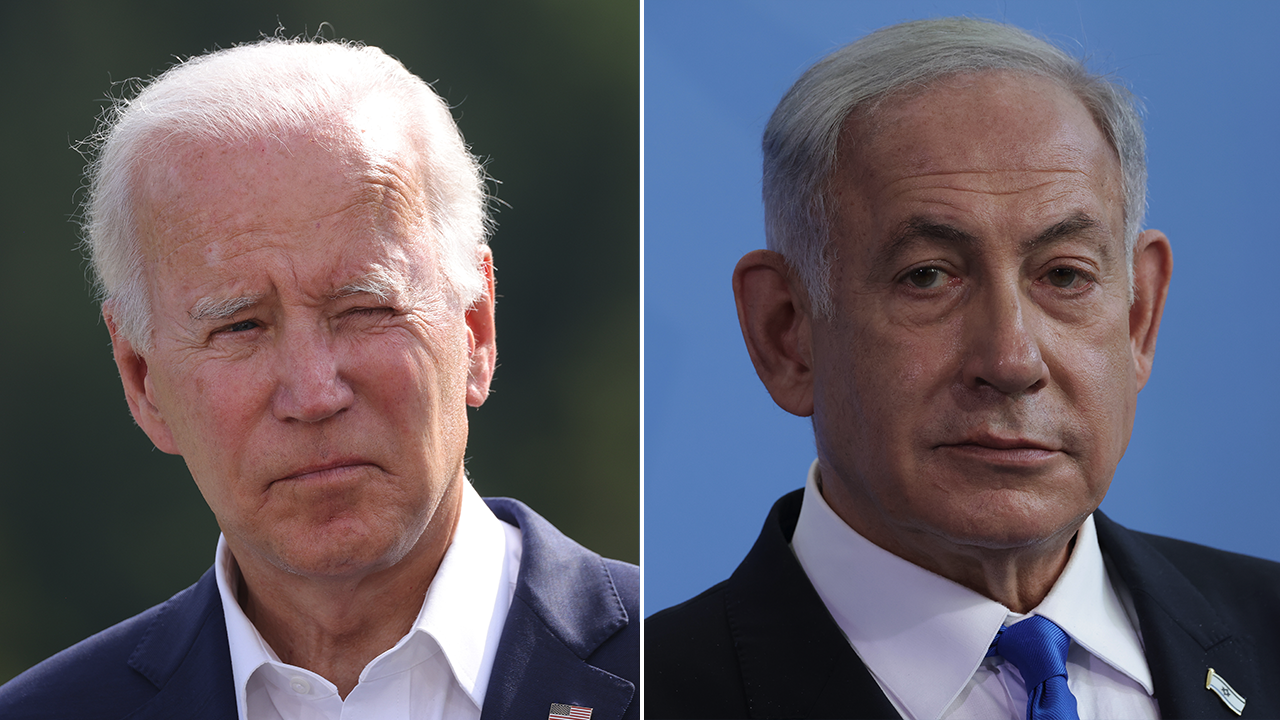Vladimir V. Putin’s vision of Russia — successful, innovative and borderless — is on display at one of Moscow’s biggest tourist attractions, a Stalin-era exhibition center that currently houses a sleek showcase called Russia 2024. The exhibition promotes what the Kremlin portrays as Russia’s achievements in the past two decades, roughly the period Mr. Putin has been in power, and his promises for the future after he secures another six-year term in rubber-stamp elections this weekend.
The exhibition is in many ways a microcosm of a country whose people largely — at least in public — avert their gaze from the big and bloody war in Ukraine that Mr. Putin started more than two years ago.
The centerpiece is a grand hall housing pavilions featuring all the Russian regions, including five illegally annexed from Ukraine. Visitors to one pavilion are greeted by two LED screens attached to robotic arms displaying tulip fields that portray the region of Belgorod, which borders Ukraine, as calm and peaceful.
That is increasingly at odds with the reality of regular air raid sirens and deadly Ukrainian missile and drone strikes on the city, including one on Thursday that killed two people and injured 19.
At the Crimea pavilion, throngs of visitors pose with men dressed as Roman legionnaires next to a video boasting about the bridge connecting the peninsula, which was illegally annexed in 2014, to the Russian mainland. There is no mention of the Ukrainian attack in 2022 that blew a hole in the bridge, or the frequent threats that lead to the closing of the bridge for hours at a time.
It is a cognitive dissonance many Russians have adopted, celebrating the motherland and accepting the government’s triumphal narrative — even as Mr. Putin has become a pariah in much of the Western world, domestic prices rise and the Russian army suffers a staggering number of casualties in Ukraine.
“People have spent these two years in this weird state where you basically have to choose to ignore a major tragedy,” said Greg Yudin, a Russian sociologist and research scholar at Princeton University. “Most people understand what is going on but they still have to pretend nothing is happening. This is a deeply traumatic experience.”
“It’s maybe not a masterpiece, but it showed Russia just as it is,” said Maria, a 42-year-old water-sanitation engineer attending the exhibit with her colleague Elena, 63. Both women were effusive about what they saw, but they were hesitant to share their full names with a foreign journalist for fear of reprisal.
Mr. Putin has visited the exhibition four times, and his presence is everywhere in quotations displayed across many of the pavilions.
“The borders of Russia don’t end anywhere,” read one quote at the exhibit for the occupied Kherson region in Ukraine. On a recent afternoon, a woman posed in front of the quote, flexing her biceps as a man photographed her.
With the Russian election apparatus controlled by the Kremlin, Mr. Putin is assured of being declared the landslide victor over three other candidates in voting that begins Friday and ends on Sunday night. Already in power since 1999, if he serves his term to completion, Mr. Putin will become the longest-serving Russian leader since Empress Catherine the Great in the 1700s.
The vote comes as Russians are winning on the battlefield amid waning support for Ukraine in the United States. Mr. Putin has of late adopted a tone of confidence, reassuring Russians that life will be normal while taking an increasingly antagonistic posture toward the West, which he portrays as a threat to Russia’s very existence.
The Russia 2024 exhibit is part of what leaked Kremlin documents obtained by Delfi, an Estonian news outlet, refer to as a domestic “information war,” whose budget is at least $690 million.
The documents, shared with The Times and other news organizations, reveal extensive expenditures on media and film projects intended to build support for the war, known in Russia as the “special military operation,” and the occupation of parts of eastern Ukraine.
For now, the Kremlin’s “information war” seems to be reaping dividends. Attendees expressed awe and joy at the exhibition, a sign that the selective vision of Russia pushed by the Kremlin two years into the full-scale invasion of Ukraine still has traction with many ordinary citizens.
Last month, in a poll by the independent Levada Center, 75 percent of respondents said that the country was moving in the right direction — more than at any time since the question was first asked in 1996.
Another poll by Levada showed that fewer than one in five Russians “believe they have the power to change anything” in their country. Still, most Russians “still believe they are living in a democracy,” said Andrei Kolesnikov, a senior fellow at the Carnegie Russia Eurasia Center in Moscow.
One of the few reminders of the war at Russia 2024 was a pavilion that married two of the Kremlin’s core policy priorities: the militarization of society and “patriotic education” for school-age youth.
“The Army for Children” welcomed kids with cartoon animals in uniform. Children were invited to practice operating state-of-the-art drones, sit in a virtual-reality flight simulator and play a video game called Counter-Strike.
Mr. Putin has promised to prioritize servicemen and women, announcing a new program called “Time of Heroes” in his annual state-of-the-union address last month. Its goal is to give veterans and soldiers a chance to become part of a “special personnel training program” for developing professionals.
As Russia reorients its economy to serve the war, the Kremlin is “creating a new middle class,” Mr. Kolesnikov, the Carnegie analyst, said.
Still, Russians remain anxious about the war, said Mr. Yudin, the Princeton sociologist. It is an uncertainty that oddly has the effect of drawing voters to Mr. Putin.
“There are fears about what will happen if we don’t win: We will be humiliated, everyone will be prosecuted, we will have to pay huge reparations — and basically put under foreign control,” Mr. Yudin said. “These fears are fueled by Putin, who has also positioned himself as the only one who can end the war.”
That is in large part because the Kremlin has suppressed every candidate who has called for an end to the war. One of them, Yekaterina Duntsova, a former TV host, was disqualified from running late last year. Boris B. Nadezhdin, another antiwar candidate, garnered more than 100,000 signatures of support but was disqualified for what the election commission called “irregularities.”
The vote this weekend will also take place without any independent oversight; the country’s primary election-monitoring group, Golos, has been designated a “foreign agent” by the Ministry of Justice, and its co-founder, Grigory Melkonyants, has been jailed.
Mr. Putin’s biggest rival, the opposition leader Aleksei A. Navalny, died on Feb. 16 in an Arctic penal colony under mysterious circumstances.
His gravesite on the outskirts of Moscow has become a pilgrimage destination for an estimated tens of thousands of Russians who preferred his vision for the “beautiful Russia of the future” over Mr. Putin’s war, mobilization and nuclear threats.
Many antiwar Russians, at home and in exile abroad, are unsure whether to take part in a sham election that is neither free nor fair.
Before his death, Mr. Navalny called on opposition-minded people to go to their polling station on Sunday at noon to protest. The turnout will be the first test of his legacy and of the anger and momentum accumulating since his funeral — whether the desire to protest outweighs the fear of reprisal.
On Thursday, the Moscow prosecutor’s office warned that the protests were illegal and that organizing or participating in them would be considered acts punishable by up to five years in prison.
Back at the Russia 2024 exhibition, Elena, the water-sanitation engineer, said she was ambivalent about voting. “Maybe I’ll vote, because things are going really well right now,” she said, before quickly stopping herself.
“But of course, we hope that all of this will end well,” she said in an oblique reference to the war. “The people really want this to end.”






